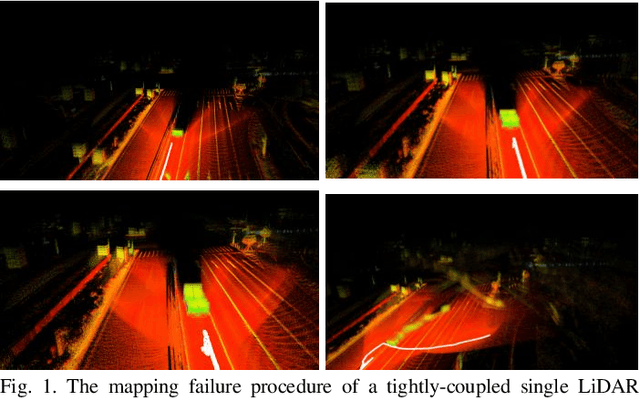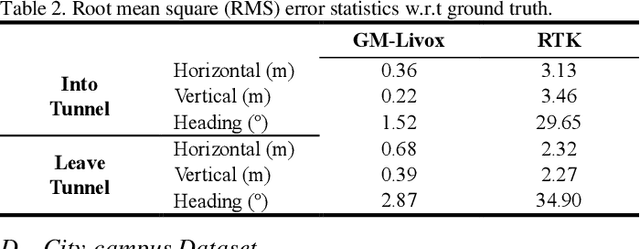GM-Livox: An Integrated Framework for Large-Scale Map Construction with Multiple Non-repetitive Scanning LiDARs
Paper and Code
Oct 11, 2021



With the ability of providing direct and accurate enough range measurements, light detection and ranging (LiDAR) is playing an essential role in localization and detection for autonomous vehicles. Since single LiDAR suffers from hardware failure and performance degradation intermittently, we present a multi-LiDAR integration scheme in this article. Our framework tightly couples multiple non-repetitive scanning LiDARs with inertial, encoder, and global navigation satellite system (GNSS) into pose estimation and simultaneous global map generation. Primarily, we formulate a precise synchronization strategy to integrate isolated sensors, and the extracted feature points from separate LiDARs are merged into a single sweep. The fused scans are introduced to compute the scan-matching correspondences, which can be further refined by additional real-time kinematic (RTK) measurements. Based thereupon, we construct a factor graph along with the inertial preintegration result, estimated ground constraints, and RTK data. For the purpose of maintaining a restricted number of poses for estimation, we deploy a keyframe based sliding-window optimization strategy in our system. The real-time performance is guaranteed with multi-threaded computation, and extensive experiments are conducted in challenging scenarios. Experimental results show that the utilization of multiple LiDARs boosts the system performance in both robustness and accuracy.
 Add to Chrome
Add to Chrome Add to Firefox
Add to Firefox Add to Edge
Add to Edge